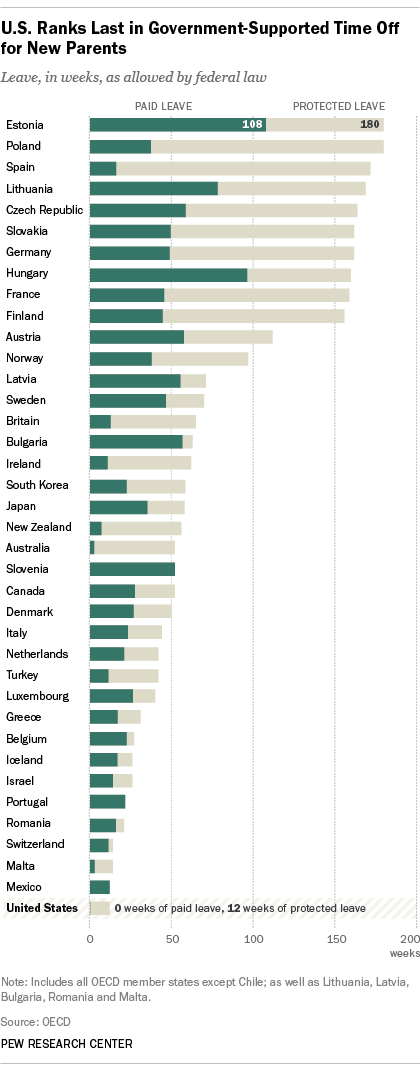Netflix Just Made an Amazing Announcement for Families

By:
Netflix announced in a blog post on Tuesday that new parents will receive unlimited paid parental leave for the first year of their child's life or adoption. Chief Talent Officer Tawni Cranz wrote that this is part of the company's effort to promote a "freedom and responsibility” culture for workers.
"We want employees to have the flexibility and confidence to balance the needs of their growing families without worrying about work or finances," Cranz wrote. "Parents can return part-time, full-time, or return and then go back out as needed. We’ll just keep paying them normally, eliminating the headache of switching to state or disability pay. Each employee gets to figure out what’s best for them and their family, and then works with their managers for coverage during their absences."
In the statement, Cranz wrote that Netflix wants to set workers up for success by encouraging them not to worry about staying home when their child is young or new to the family.
"Netflix’s continued success hinges on us competing for and keeping the most talented individuals in their field," she wrote. "Experience shows people perform better at work when they’re not worrying about home. This new policy, combined with our unlimited time off, allows employees to be supported during the changes in their lives and return to work more focused and dedicated."
How America stacks up against Netflix's family leave policies
While this is wonderful for Netflix employees, many workers in America will never know the luxury of unlimited paid parental leave. As ATTN: reported in the spring, a Pew Research Center report found the U.S. has the worst family leave policies of any developed country. Of 38 nations, including Mexico, America ranks last for weeks of paid leave and protected leave.
Studying parental and maternity leave data from Organization for Economic Cooperation and Development (OECD), Pew created this chart:
 Pew Research Center/OECD - pewresearch.org
Pew Research Center/OECD - pewresearch.org
The U.S. guarantees zero weeks of paid leave and 12 weeks of protected leave, meaning you can return to your job after three months of leave but legally go unpaid for that amount of time. Also, under America's Family and Medical Leave Act (FMLA) of 1993, this is only applicable to employees who have been at a company of 50 or more workers for at least a year. Again, employers are not required to pay you during your leave.
Why where you work determines your family leave
The 50-employee requirement also puts workers at smaller, newer companies at a disadvantage. As ATTN: described it in June, "if you're pregnant at a tiny start-up in the U.S., your paid and protected leave options are at the discretion of your manager. Even if you work at a company with more than 50 people, you might run into some trouble if you find out you're having a kid before hitting your one-year employee mark."
Vicki Shabo, vice president of National Partnership for Women and Families, told the New York Times in 2013 that one's place of employment should not determine whether they will get parental leave.
“What one person might get is an accident of where you happen to work or where you happen to be,” Shabo said. “Instead, what we need are public policies that provide a basic level of protection. It shouldn’t matter where you live or who you work for. All that matters is that you should have time to take care of your children without worrying about facing major financial turmoil."
Young people want flexibility
Netflix's move will surely be well-received among its young workers, as research shows Millennials appreciate workplace flexibility. A recent survey by financial services provider EY found that Millennials are much more likely to take paid parental leave compared to previous generations. The research found Millennials immensely value flexibility and that young parents are more likely to stress the importance of subsidized childcare, paid parental leave, and remote working. Almost 40 percent of Millennials said they would “move to another country with better parental leave benefits.”
Or maybe they'll just move on over to Netflix.
